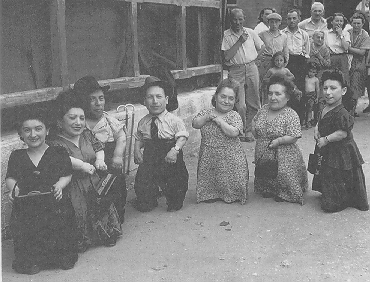

Two heterozygous parents have a 50% chance of producing heterozygous children and a 25% chance of having a homozygous recessive child. When both parents are homozygous, all children can be affected.
Galactosemia (the inability to metabolize lactose) is an example of autosomal recessive inheritance in which a single gene mutation prevents manufacture of an enzyme needed in the conversion pathway.
Autosomal Dominant Inheritance: A dominant allele is always expressed and if it reduces the chance of surviving or reproducing, its frequency should decrease. However, mutations and postreproductive onset work against this hypothesis.
Achondroplasia (dwarfism) is a benign abnormality caused by autosomal dominant inheritance. In the homozygous form, it usually leads to stillbirth. Heterozygotes display a type of dwarfism with short arms and legs relative to other body parts.
Huntington disorder is a serious degeneration of the nervous system with an onset from age 40 onward. It is also caused by an autosomal dominant allele which is often passed on before the person knows they have the condition.